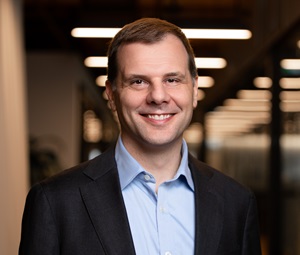Protecting people and data: HR’s role in data privacy
- Josephine Tan

Data Privacy Day, observed annually on January 28, serves as a crucial reminder of the importance of safeguarding sensitive information. In today’s increasingly digital world, where data fuels business operations and AI is rapidly transforming industries, robust data privacy practices are no longer optional but essential. This is especially true for HR departments, which handle vast amounts of employee data, from personal details and payroll information to performance reviews and health records.
The stakes are high. Data breaches can lead to financial losses, reputational damage, legal repercussions, and a significant erosion of trust. For HR, this trust is paramount. Employees need to feel confident that their personal information is being handled responsibly.
The convergence of AI and data privacy

The rise of AI presents both opportunities and challenges for data privacy. While AI can enhance HR processes, from recruitment to talent management, it raises concerns about data usage and potential biases. As David Irecki, CTO for APJ at Boomi, pointed out, “Data privacy is more critical than ever as organisations invest in AI.” He emphasised the importance of obtaining “clear and explicit permission” for data collection, encrypting personal information, and providing easy opt-out options.
Irecki also highlighted the need for AI transparency. “Organisations should clearly explain how their AI model arrives at various decisions and conclusions that make sense to humans,” he said. This transparency, robust testing policies, and human oversight are crucial to preventing AI from perpetuating biases and ensuring ethical use. “Organisations also need to ensure that their models are not trained on data that perpetuates long-standing patterns of discrimination or bias. Human oversight remains essential, ensuring these systems comply with regulations and ethical standards,” he added.
A holistic approach to data protection

Protecting data requires more than just implementing the latest technology. It demands a holistic approach integrating people, processes, and technology frameworks. As Arun Kumar, Regional Director for APAC, ManageEngine, explained, “Data privacy has become a critical aspect of modern business operations as organisations strive to protect their sensitive information from potential threats. Safeguarding data is essential, not only to prevent financial loss, reputational damage, and loss of intellectual property but also to uphold customer trust.” This principle applies equally to employee trust within the HR context.
Kumar emphasised the importance of a comprehensive strategy. “For instance, solutions like security information and event management (SIEM) leverage AI and automation to proactively identify, manage, and neutralise potential threats. These tools provide organisations with real-time alerts, enhancing their ability to respond swiftly to security incidents.” However, he rightly noted that technology is only one piece of the puzzle. He said, “Data privacy also involves educating employees and fostering a culture of shared responsibility where everyone adheres to robust data protection policies and practices.”
READ MORE: Is J.A.R.V.I.S. closer than we think? A look at Agentic AI
Kumar stressed that prioritising data privacy is not just about compliance but empowerment. “It allows organisations to take control of their data and protect the rights of individuals, ensuring their information is handled transparently and responsibly. By doing so, organisations build long-lasting trust with their customers while securing their most valuable asset: data,” he concluded.
This same principle holds true for the relationship between HR and its employees. By prioritising data privacy, HR can foster a culture of trust, respect, and ethical data handling, which is essential for a thriving and successful organisation.






